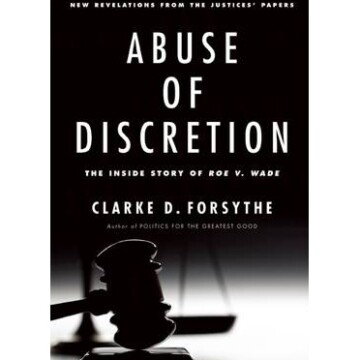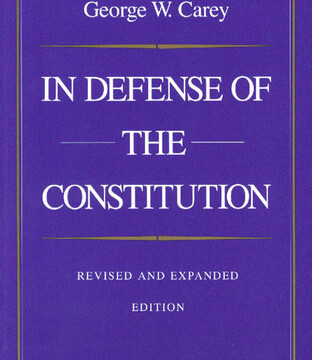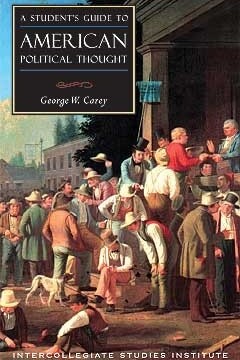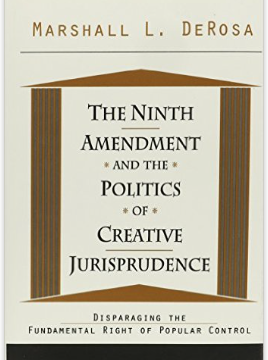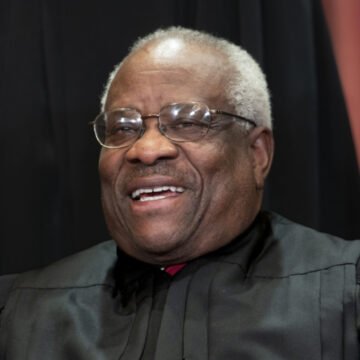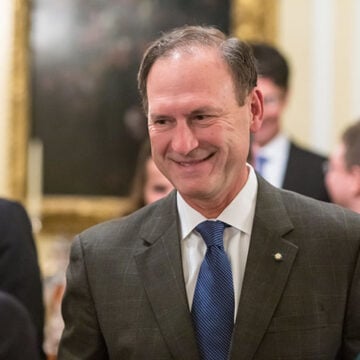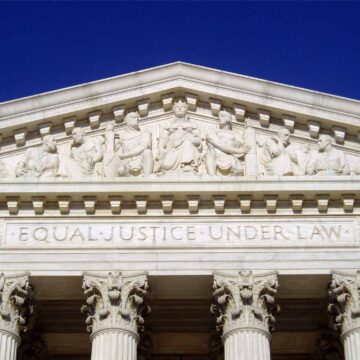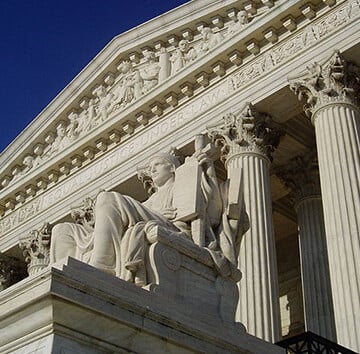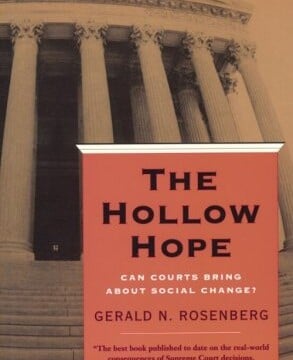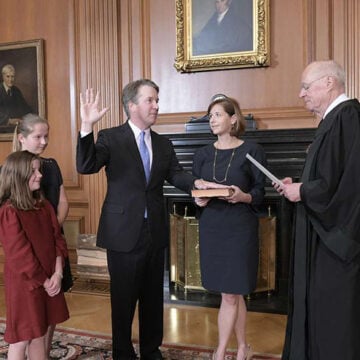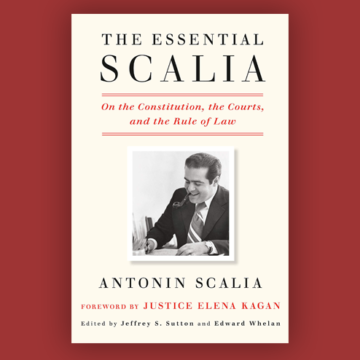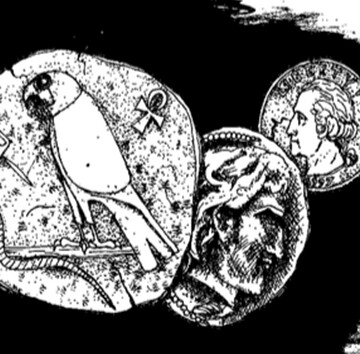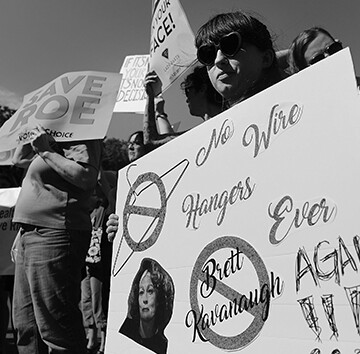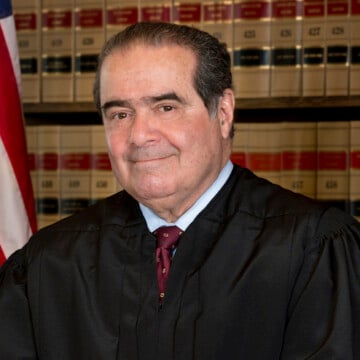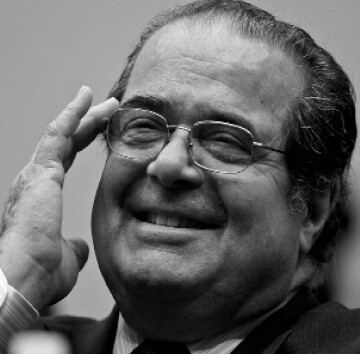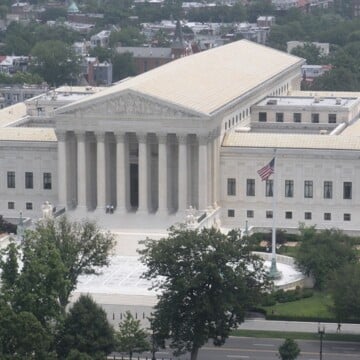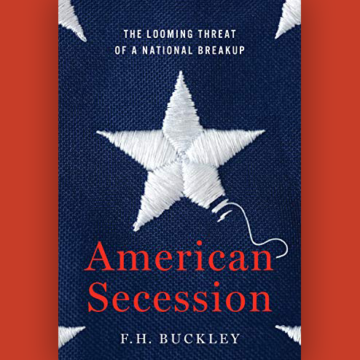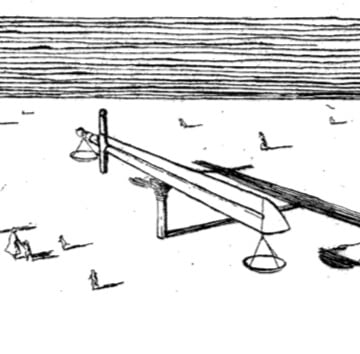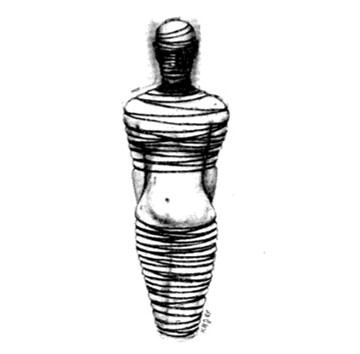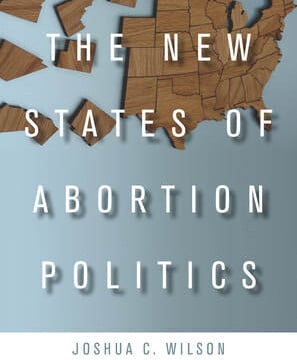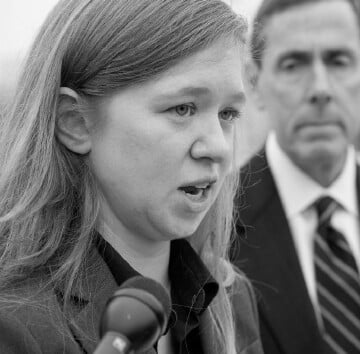The worst thing about the U.S. Supreme Court’s 1973 legalization of abortion in all 50 states and U.S. territories has not been the 55 million—and counting—dead babies, as horrible as that has been, but the damage it has caused to the rule of law, specifically the U.S. Constitution. In his dissent, Justice Byron White branded...
1630 search results for: Supreme+Court
Tackling the Judiciary
Among conservative constitutional scholars, George Carey best demonstrates the knack of remaining perpetually relevant. From his collaboration with his own mentor Willmoore Kendall in the 1960’s through his many writings on the federalist papers over three decades, some included in this volume, Carey has worked to show the value of the American founding to our...
The Road to Ideology
Americans have never been big on “political theory.” In our nation’s early decades—and arguably, up to World War II—folks were comfortable with their republican form of government and its tenets of self-reliance and self-government. However, over the past 50 years, political thought—specifically concerning what the U.S. Constitution actually means—has undergone a radical transformation. During that...
Roberts Helps Congress Evade the Constitution
Chief Justice John Roberts left U.S. Supreme Court watchers dumbfounded. Before the release of the opinion in National Federation of Independent Business v. Sebelius, pundits expected the healthcare case to turn on the Commerce Clause and for Justice Anthony Kennedy to be the usual swing vote. If Kennedy sided with the conservatives (Roberts, Scalia, Thomas,...
Rediscovering Philadelphia
“There is no liberty if the power of judging be not separated from the legislative and executive powers.” —Montesquieu The theme that unites the short, somewhat disparate eight chapters of this book is the use by the Supreme Court of unenumerated rights—that is, rights beyond those specifically enumerated in the Bill of Rights—to invalidate state...
The Supreme Court and the Due Process Clause
In addition to endorsing the overturning of Roe, Justice Thomas's concurring opinion on Dobbs threatens other due-process legal precedents, such as those that have guaranteed a fundamental right to homosexual behavior and gay marriage.
Rediscovering Philadelphia
“There is no liberty if the power of judging be not separated from the legislative and executive powers.” —Montesquieu The theme that unites the short, somewhat disparate eight chapters of this book is the use by the Supreme Court of unenumerated rights—that is, rights beyond those specifically enumerated in the Bill of Rights—to invalidate state...
Sharia Scores
On November 2, Oklahomans amended their constitution to prohibit their state courts from “look[ing] to the precepts of other nations or cultures” when adjudicating a case. The amendment specifically prohibits consideration of “international law or Sharia Law.” State Question 755, as the amendment is known, garnered the support of 70 percent of the citizenry. A...
The Left Has Been Doing ‘Oppo Research’ on Conservative Justices for Years
Leftist “opposition researchers” are relentlessly concocting ethics complaints about the Supreme Court’s conservative justices to try to get them to resign or recuse themselves.
Dodging A Bullet
The U.S. Supreme Court, late in January, dodged a bullet by refusing to decide whether Maryland’s decision to close its public schools on Good Friday violated the First Amendment’s Establishment Clause. State and local Good Friday closing laws have been with us for many generations, but recently they have been challenged in the federal courts....
Let Us Pray (But to Whom?)
In May, the Supreme Court held that the First Amendment’s Establishment Clause is not offended when a city council opens its meetings with a short prayer (Town of Greece v. Galloway). While this result seems to be an example of commonsense constitutionalism, conservatives should not be too quick to pat the Court on the back. ...
Recess Games
“Supreme Court sharply limits presidential power on recess appointments.” Thus read the headline in the Los Angeles Times after the High Court’s decision in National Labor Relations Board v. Canning. Applying its spin to the decision, National Review opined that “the Court rejected the administration’s power grab on recess appointments” and clarified when a recess...
Are All Court-Created Rights Now in Peril?
Progressives are worried that if Roe v. Wade is overturned, all their other agenda-driven, court-created rights will fall as well.
Robbing Peter, Paying Wal-Mart
When Americans debate the merits of Wal-Mart, the discussions often become contentious, centering on whether this megaretailer is a corporate predator that drives wages down and Main Street businesses into ruin or is a corporate good guy because it offers decent jobs to the jobless and low prices to consumers. Whatever one’s opinion of Wal-Mart,...
The Grove City Horror Show
Civil rights activists called Rev. Jerry Falwell “hysterical” for claiming that the recently passed Civil Rights Restoration Act could require churches to hire a “practicing, active homosexual drug addict with AIDS to be a teacher or youth pastor.” His claim was dismissed as a ploy by a televangelist to squeeze more money out of a...
Getting Off the Docket
Is President Bush kidding his conservative base on the “gay marriage” issue? There is no question, if we stay on the road we are on, that the Supreme Court will decide whether Massachusetts can impose its law on the other states. In outlawing Texas’ antisodomy law last June, the Court found that homosexuals are “free...
Stop the Litigation-Industrial Complex’s War Against Trump
Democracy is at stake, but the threat is from the courts.
Plessy v. Ferguson—One Hundred Years Later
One hundred years ago this May, Plessy V. Ferguson was decided. The Supreme Court’s 1896 decision upheld Louisiana’s law that required all passenger railways operating within the state to have “equal but separate accommodations for the white and colored races.” Over the years, the import of the decision and public perceptions of such state regulations...
The States Fight Back
What if the states started to fight back against federal refusal to protect American borders? What if they started challenging, even nullifying, federal actions that promote illegal aliens coming and staying here? Despite the centralization of America since at least 1865, the 50 states retain a surprising amount of autonomy. And oddly enough, the flood...
“Borking”
“Borking” is back. The eponymous activity first perpetrated on Judge Robert Bork when he was nominated for a seat on the United States Supreme Court is the practice of painting a proposed judicial appointee as consciously demonic, in order to excite particular interest groups to oppose his appointment. Some might oppose Borkees because of honest...
Is a Trump Court in the Making?
If Mitch McConnell’s Senate can confirm his new nominee for the Supreme Court, President Donald Trump may have completed the capture of all three branches of the U.S. government for the Republican Party. Not bad for a rookie. And the lamentations on the left are surely justified. For liberalism’s great strategic ally and asset of...
Bork v. Bork
Two of the most vilified judges in US history have probably been Judge Robert H. Bork and Chief Justice Roger Taney. Both gained notoriety early in their appointments by demonstrating their willingness to fire opponents of a domineering President’s policy (Taney, when in the Jackson administration, fired directors of the Bank of the United States...
The League Against the South
York, Alabama, is a sad little Southern town. Though it is small, it lacks the typical charm of the South. Not much happens there, but what does happen happens in the typically Southern way. The wheels of justice grind not with something as tacky as money, but with the more genteel means of connections: It’s...
Limits to Litigation
Gerald N. Rosenberg, an assistant professor of political science and an instructor in law at the University of Chicago, has some simple advice for activists who think a United States Supreme Court ruling is an end-all: not only are you wrong, but your money is better spent out of court than in court. In The...
Maybe It’s Not Time to Head for the Hills
In the wake of the Supreme Court’s decision in Obergefell recognizing a non-existent right to gay marriage in the Constitution, there have been numerous articles stating that America has accepted gay marriage and that social conservatives should now shut up. A variation of this theme has been taken up by certain social conservatives such as...
Clarifying Constitutional Law
The U.S. Supreme Court, many had hoped, would use this term to clarify constitutional law and move jurisprudence somewhat closer to the original understanding of the Constitution. The Court has yet to issue important opinions regarding school vouchers, partial-birth abortion, the Violence Against Women Act, and prayer at high school football games, but the latest...
Impeachable Offenses
Back in March, Republican Majority Whip Tom DcLay took lunch at the Washington Times and started jabbering about how he and his party were going to impeach “activist judges” who handed down improper rulings. I know something about how those luncheons at the Times work, so I was not as impressed as some people. First,...
A Look Ahead
IN THE SUPREME COURT OF THE UNITED STATES on writ of certiorari to the court of appeals June 26, 2013 (Justice Kennedy delivered the opinion of the Court.) The jurisprudence of liberty is a bright and shining star. Its twinkling arc across the sky of our constitutional polity signals the nation’s fundamental commitment to the...
NYT Reporter Who Regrets Kavanaugh Hit Writes Book Defending the Media
The internal logic of the book David Enrich just wrote does not square with his statements about his own conduct.
DOMA
President Bush, in his State of the Union Address, repeated a campaign promise: “Because marriage is a sacred institution and the foundation of society, it should not be re-defined by activist judges. For the good of families, children, and society, I support a Constitutional Amendment to protect the institution of marriage.” The President must know,...
Back in the News
Partial-birth abortion is back in the news, and for the first time, there appears to be some hope for the pro-life side. Of all the extraordinary things that the United States Supreme Court has done in the past few decades, none matches its 1973 decision in Roe v. Wade. Justice Blackmun’s majority opinion articulated a...
The Court’s Own Critic
The Essential Scalia: On the Constitution, the Courts, and the Rule of Law; By Antonin Scalia; Edited by Jeffrey S. Sutton and Edward Whelan; Foreword by Justice Elena Kagan; Crown Forum; 368 pp., $35.00 Steven Calabresi, one of the founders of the Federalist Society for Law and Public Policy Studies, maintains that Antonin Scalia was the greatest justice ever...
The Most Dangerous Man in the Mid-South
This is the first of a series of first-person reports from American citizens who have run afoul of the bureaucracy. While we have made reasonable efforts to verify the accounts, the stories are personal statements of the authors. Almost 30 years ago, just a few weeks before I got married, I found a strange book...
Voucher Plan
School vouchers violate the First Amendment of the Constitution—or so ruled federal District Judge Solomon Oliver, Jr., in early December. Cleveland’s voucher plan, authorized under state legislation, was nondenominational and permitted students, selected by lot, to choose a school participating in the program and to receive a grant from the state to subsidize the cost...
Kavanaugh and the Roe Dance
Brett Kavanaugh’s nomination by President Trump for the blessed vacancy left by retiring justice Anthony Kennedy, author of the civilization-defying Obergefell opinion, supplied the heat necessary to cause the vaunted American melting pot to boil over and reveal its rancid contents. Those contents included the innocent limbs and brains of David Daleiden videos, eagerly devoured...
Faux Originalism
Is Antonin Scalia’s originalism—indeed, constitutional self-government itself—passé? The eternal temptation to read one’s own values into the Constitution beguiles even religious conservatives espousing natural law. The U.S. Constitution is the “supreme law of the land,” whose ultimate interpretation is entrusted, by longstanding custom if not by explicit textual direction, to the U.S. Supreme Court. Accordingly,...
Source of Great Expectation
The Reagan Court has been a source of great expectation for conservatives. If only a few more superannuated justices would retire (or die), then we could have the court’s unchecked authority in our own hands. A favorite target of pious hopes and voodoo dolls is the apparently senile Thurgood Marshall. An example of tokenism at...
On Michigan
The article by former Michigan state representative Greg Kaza concerning the effect of the U.S. Supreme Court’s decision in the University of Michigan race-preference cases (“Michigan’s Race Factor,” Vital Signs, October) is dreadfully misleading. Kaza would have us believe that an important victory in the struggle against race-based preferences had been won. Quite the opposite...
Antonin Scalia’s Flexible Constitution
Who is to decide? This question animated Associate Justice Antonin Scalia, who died of natural causes in mid-February. He was the longest-serving member of the current Supreme Court. Nominated by Ronald Reagan in 1986, Scalia was known for his acerbic wit and fidelity to the text of the Constitution, as understood by those who ratified...
Last Best Chance to Capture Supreme Court
President Donald Trump and Senate Majority Leader Mitch McConnell are on the cusp of making history. With Trump having named two justices to the U.S. Supreme Court, Neil Gorsuch and Brett Kavanaugh, they have an opening to elevate a third justice to fill the seat of Ruth Bader Ginsburg, thereby securing the constitutionalism of the...
The Guantanamo Question
Who should determine whether alien enemy combatants captured in Iraq and Afghanistan are properly in the custody of the U.S. government at the U.S. Naval Station at Guantanamo Bay? The President and Congress have set up special military tribunals to make such determinations, but some federal judges and some critics of President George W. Bush...
Secession Becomes Thinkable
American Secession: The Looming Threat of a National Breakup; by F. H. Buckley; Encounter Books; 184 pp., $23.99 When asked whether a state can constitutionally secede from the United States, Supreme Court Justice Antonin Scalia brushed the question aside, saying the matter was settled by the Civil War. He was wrong. A Zogby poll in 2018 found that...
First Things Last
If the election of 1996 turned out to be an even bigger snore than most citizens anticipated, the fall of the year was nevertheless enlivened by a dangerous outbreak of something resembling actual cogitation on the American right. Given the mentally paralytic cast of the Dole-Kemp campaign and much of the party that nominated it,...
Puppets and Their Masters
A naked boy runs down a crowded Italian street, chased by an angry old man. Grabbing the boy by the back of the neck, the old man shouts: “Just wait till I get you back home.” The crowd quickly takes sides against the old man, and when the carabinieri arrive, they take him off to...
The Coming Slap in the Face
In June 2005, the U.S. Supreme Court handed down its decision in Kelo v. City of New London, depriving property owners of rights that virtually everyone has always assumed they had. Very soon—before you can say “sequel to Lawrence v. Texas”—the Supreme Court will no doubt take up the issue of same-sex marriage. You think...
Heightened Security
Federal judges in California have been busy. In August, Judge Vaughn Walker held that it is irrational to limit marriage to one man and one woman. Following in Judge Walker’s footsteps, Judge Virginia A. Phillips struck down the congressional prohibition against homosexuals in the military as violating the First Amendment and the Due Process Clause...
Life and Death in a House Divided
The Supreme Court’s recent decision to review a Missouri abortion case has raised the spirits of the pro-life movement. In his appeal, Missouri’s attorney general asked the Court to reconsider Roe v. Wade, the landmark civil rights decision that made pregnant women and their physicians sole arbiters over who is born and who is not...
Abortion Politics in the Age of Trump
Abortion politics has consumed my adult life, starting in 1972 when, at 17, I helped defeat the abortion-legalization Measure B on Michigan’s ballot. A few weeks later, on January 22, 1973—like December 7, 1941, a date that will live in infamy—the U.S. Supreme Court dive-bombed the country by erasing all state abortion laws—including in those...
DOMA’s Fifth Column
In February, President Obama directed the Department of Justice to stop defending Section 3 of the Defense of Marriage Act (DOMA). Immediately, many conservatives decried the announcement. Curt Levy of the Committee for Justice described Obama’s decision as “outrageous” and a “power grab that . . . would allow him to undermine any duly enacted...
Beating Affirmative Action
Is the composition of the Supreme Court the be-all and end-all of important societal conflicts? Are there effective ways that conservatives can address these conflicts—manifest in political battles over such things as affirmative action—apart from the Court? The Supreme Court’s decision in Fisher v. University of Texas, handed down on June 23, means affirmative action...
